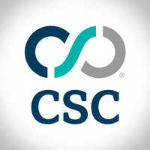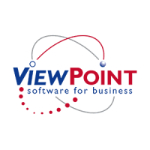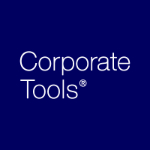TechnologyCounter provides genuine, unbiased real user reviews to help buyers make informed decisions. We may earn a referral fee when you purchase through our links, at no extra cost to you.
List of Best Entity Management Software
Showing 1 - 11 of 11 productsDiligent is a software that is changing the game for businesses and organizations by streamlining their processes and improving efficiency. With its user-friendly interface and innovative features, Diligent offers a seamless and effortless way for co...Read Diligent Reviews
Athennian is an all-in-one legal entity management software that streamlines the complex and time-consuming processes of managing corporate entities. With its intuitive platform and customizable features, Athennian empowers legal professionals to eff...Read Athennian Reviews
CSC Entity is a software that integrates and streamlines various business processes, providing a centralized platform for managing operations and data. With its advanced features and user-friendly interface, this software is an essential tool for bus...Read CSC Entity Reviews
EntityKeeper is a organizational tool for businesses of all sizes. This powerful software streamlines entity management, simplifies compliance tasks, and ensures accurate record-keeping. With EntityKeeper, say goodbye to tedious paperwork and hello t...Read EntityKeeper Reviews
Harbor Compliance is a Entity Management Software that caters to the needs of Startups and Agencies. It offers a wide range of features and provides a complete solution for managing entities. This user-friendly online system includes Compliance Mana...Read Harbor Compliance Reviews
ViewPoint Entity is a software designed to revolutionize how businesses manage their data and analytics. With its intuitive and user-friendly interface, ViewPoint Entity provides a seamless experience for businesses of all sizes, making it the go-to...Read ViewPoint Entity Reviews
EnGlobe is a software designed to revolutionize the way businesses manage their data. Developed by a team of experts, EnGlobe offers a user-friendly is a platform for organizing, analyzing, and optimizing important information. Whether youre a small...Read EnGlobe Reviews
Corporate Entity, a powerful software designed specifically for businesses to streamline their operations and increase efficiency. With its user-friendly interface features, Corporate Entity offers a seamless experience for all your corporate needs...Read Corporate Entity Reviews
ContractZen is your one-stop solution for all your contract management needs. Our powerful software helps businesses streamline their document management, reduce manual processes, and increase productivity. Trustworthy, user-friendly, and always acce...Read ContractZen Reviews
ContractZen is your one-stop solution for all your contract management needs. Our powerful software helps businesses streamline their document management, reduce manual processes, and increase productivity. Trustworthy, user-friendly, and always acce...Read ContractZen Reviews
CSC Entity is a software that integrates and streamlines various business processes, providing a centralized platform for managing operations and data. With its advanced features and user-friendly interface, this software is an essential tool for bus...Read CSC Entity Reviews
Diligent is a software that is changing the game for businesses and organizations by streamlining their processes and improving efficiency. With its user-friendly interface and innovative features, Diligent offers a seamless and effortless way for co...Read Diligent Reviews
ViewPoint Entity is a software designed to revolutionize how businesses manage their data and analytics. With its intuitive and user-friendly interface, ViewPoint Entity provides a seamless experience for businesses of all sizes, making it the go-to...Read ViewPoint Entity Reviews
Harbor Compliance is a Entity Management Software that caters to the needs of Startups and Agencies. It offers a wide range of features and provides a complete solution for managing entities. This user-friendly online system includes Compliance Mana...Read Harbor Compliance Reviews
- What Is Entity Management Software?
- Top Reasons Why Businesses Need Entity Management Software?
- What Are the Top Key Features of Entity Management Software?
- What Are the Top Benefits of Entity Management Software?
- What Are the Steps to Choose the Right Entity Management Software?
- What Are the Types of Entity Management Software for Different Industries?
- What Are the Technology Trends for Best Entity Management Software?
- What Are the Deployment Options for Entity Management Software?
What Is Entity Management Software?
Entity management software refers to a computer application designed to facilitate the management of various components within business entities, including but not limited to customers, employees, vendors, partners, and suppliers.
This program facilitates the consolidation of corporate interactions into a centralized system, enabling the tracking of many entities. Additionally, it provides functionality for role assignment, document management, and data analysis. This implies that the tracking of all relationships between the firm and its entities might enhance overall operational effectiveness.
Entity software facilitates the dissemination of crucial information to customers, vendors, and suppliers, hence assisting businesses in maintaining up-to-date relationships with these stakeholders. A unified platform has the capability to hold all pertinent papers, contacts, and associated information for each entity.
Organizations possess the capability to allocate specific responsibilities and authorizations to individuals inside their entities, hence facilitating the effective management of each person's distinct level of engagement.
In general, the utilization of top entity management software significantly enhances business efficiency by facilitating the consolidation of various entities into a single platform for efficient management. This software offers a streamlined approach for monitoring and overseeing the present and past data of individual entities, hence facilitating a more efficient operational setting for businesses.
Top Reasons Why Businesses Need Entity Management Software?
1. Streamlined Data Management: Entity management software facilitates the consolidation of data into a unified repository, allowing enterprises to access and manage information from a centralized location.
This feature enhances the ability to effectively monitor and manage many entities and their associated information, hence minimizing the need for manual data input and lowering the time required to oversee several systems.
2. Improved Governance: By utilizing entity software, organizations may acquire a comprehensive understanding of their corporate framework, enabling them to effectively execute and oversee modifications that align with their corporate strategy.
3. Automated Compliance Monitoring: The best entity management software plays a crucial role in facilitating firms' adherence to dynamic regulatory regulations and industry standards. The program additionally aids in the optimization of audit procedures by furnishing auditors with a dependable repository of information.
4. Enhanced Risk Management: This is a tool that aids enterprises in the effective identification, planning, and management of hazards. This facilitates enhanced comprehension for firms of the specific aspects of their operations that may present possible hazards, hence enabling the development of corresponding mitigation plans.
5. Mitigation of Reputational Risks: The utilization of entity data management software enables businesses to effectively oversee the actions and evaluate the performance of entities within their corporate framework, hence mitigating any potential dangers to their reputation.
6. Consolidation of Financial Reporting: Entity management software is a tool that facilitates the consolidation of financial reports from several entities, hence streamlining the process of preparing consolidated financial statements.
7. Facilitates Mergers and Acquisitions: Entity management software streamlines the procedure of consolidating and procuring novel entities, hence enhancing the efficiency and expediency of executing these transactions.
8. Improved Data Security: The utilization of an entity management platform enables enterprises to effectively store and safeguard data from potential threats posed by external harmful entities.
9. Enhanced Communication: Entity management system facilitates seamless data interchange among entities, stakeholders, and partners by virtue of its robust communication capabilities.
10. Improved Governance for Third-Party: This software is utilized by enterprises to effectively manage their relationships with third parties. This software ensures that all agreements and partnerships are in accordance with industry best practices and regulatory requirements.
11. Automated Entity Record Maintenance: Entity management software assists businesses in saving time and effort by automating the maintenance of entity records, hence eliminating the necessity for human tracking and updating of records.
12. Streamlines Contract Management: It enables firms to efficiently oversee their contracts, securely store all pertinent papers, and effectively monitor all contractual commitments.
13. Creates Transparency: By utilizing this software, organizations can acquire a comprehensive understanding of their corporate frameworks, facilitating the establishment of a significant level of openness throughout the entire enterprise.
14. Improves Data Quality: The implementation of an entity management system enables firms to consolidate and safeguard data, hence guaranteeing the accuracy and currency of the collected information.
15. Improved Regulatory Compliance: Entity management software aids firms in adhering to regulations and legislation across several countries, ensuring that they remain current and in accordance with legal requirements.
What Are the Top Key Features of Entity Management Software?
1. Automated Entity Creation and Maintenance: The utilization of entity administration software facilitates the automated and smooth generation, upkeep, and alteration of entities, hence obviating the necessity for manual data entry.
2. Entity Lifecycle Management: The functionality enables users to systematically monitor the whole lifecycle of an entity, encompassing its inception, modifications, dismantling, or acquisition. This capability offers an exceptional level of transparency and authority.
3. Entity Hierarchies and Taxonomies: Entity management software provides users with the capability to establish hierarchical and/or taxonomy-driven systems, facilitating the organization of linked entities and the management of changes in hierarchy.
4. Compliance Tracking and Reporting: Entity management software streamlines the process of tracking compliance by offering up-to-date information on the compliance status of an organization. This enables users to promptly identify entities that are not in compliance and generate relevant compliance reports.
5. Audit Logs and Risk Analysis: This functionality enables users to acquire knowledge about the activities pertaining to an entity, its proprietors, and the corresponding operational processes. Additionally, it has the capability to perform automated risk analysis in order to detect and assess potential dangers, as well as offer advice on how to mitigate them.
6. Customer Relationship Management: This functionality enables users to acquire knowledge about the activities pertaining to an entity, its proprietors, and the corresponding operational processes. Additionally, it has the capability to perform automated risk analysis in order to detect and assess potential dangers, as well as offer advice on how to mitigate them.
7. Access and Permission Controls: Through the use of access and permission restrictions, entity management software has the capability to guarantee that solely authorized persons are granted access to entity information and its corresponding responsibilities.
8. Integration with Other Applications and Systems: Entity management software often supports connections with various business, departmental, and industry-specific systems or applications. This functionality allows users to access a holistic perspective of their entity data and related tasks.
What Are the Top Benefits of Entity Management Software?
1. Improved efficiency: Entity management system is a tool utilized by businesses to enhance operational efficiency through the automation of manual procedures such as onboarding, maintenance, and administration of ownership data.
2. Increased visibility: Entity management software provides businesses with a centralized and reliable repository for managing their entities. This software enables organizations to have real-time access to their entity data, hence enhancing their visibility and understanding of this information.
3. Reduced compliance risk: Entity management software is a tool utilized by firms to effectively handle their regulatory compliance responsibilities, encompassing a range of areas such as anti-money laundering (AML) and customer due diligence (CDD).
4. Reduced data security risks: Entity software aids firms in safeguarding and preserving their entity data by consolidating it into a centralized system, as opposed to dispersing it across several sources.
5. Reduced overhead costs: The utilization of the best entity management software enables enterprises to mitigate the expenses associated with manual entity administration and enhance the efficiency of their operational processes.
6. Enhanced collaboration: Entity data management software offers organizations the necessary capabilities to facilitate efficient collaboration and data interchange among different entities.
7. Improved business agility: Entity management platform facilitates firms in promptly adapting to market fluctuations or consumer demands by offering a dynamic representation of the organizational structure.
What Are the Steps to Choose the Right Entity Management Software?
1) Identify your organization's specific needs: It is imperative to take into account the requirements of one's business, as well as the specific characteristics and scale of the entity being administered. It is imperative to ascertain the most essential elements required, ranging from compliance reporting to online payments and accounting.
2) Conduct research: Determine the most appropriate software type that aligns with the specific needs of your firm. Conducting fundamental research on software evaluations, user comments, feature comparisons, and cost structures can significantly contribute to making a well-informed conclusion.
3) Analyze features: Determine whether the software under consideration fulfills all of the specified criteria. It is imperative to possess a comprehensive understanding of the distinct features inherent in entity management software, as well as the available options for individual user licenses.
4) Set a budget: Determine the budget allocation for the management of your organization. Having knowledge of your budget will aid in determining which software is compatible with it.
5) Test the software: It is advisable to initially evaluate the software through a complimentary trial period. Implementing this approach is an effective means of ensuring that the software aligns with the specific requirements of your firm.
6) Consult an expert: Entity software is advisable to seek consultation from an information technology (IT) specialist in order to obtain guidance regarding the appropriate software selection. The individual in question possesses the capacity to offer significant perspectives that may aid in the process of arriving at an optimal option.
7) Make the purchase: Upon reaching a state of assurance regarding the suitability of the program for your firm, you may proceed with the acquisition. It is advisable to thoroughly review the license terms and conditions and address any outstanding inquiries prior to proceeding with the purchase.
What Are the Types of Entity Management Software for Different Industries?
Entity management software is a software application utilized for the purpose of effectively managing data pertaining to various entities, including but not limited to individuals, companies, and locations.
Typically, the practice entails the automation of operations, the monitoring and recording of information, and the generation of reports. This particular software aids enterprises in effectively navigating and overseeing the intricacies involved in the handling and administration of substantial quantities of customer, vendor, and other entity-related data.
Entity software has the capability to be utilized in a diverse range of industries, encompassing:
• Financial Services: Entity software is utilized for the purpose of effectively managing client and vendor information within the domains of banking, insurance, and other financial services. Enterprise resource planning (ERP) systems aid organizations in monitoring financial activities, producing comprehensive reports, and ensuring adherence to regulatory requirements.
• Healthcare: Entity management system is utilized for the purpose of effectively overseeing patient information, administering billing processes, and coordinating appointments. This intervention facilitates the enhancement of patient outcomes and the provision of superior care within company operations.
• Retail: Entity management software is utilized for the purpose of effectively managing client information, monitoring loyalty programs, and generating comprehensive sales statistics. The utilization of data analytics enables organizations to effectively monitor customer purchasing patterns and enhance the development and delivery of their products and services.
• Government and Public Sector: The best entity management software is utilized for the purpose of effectively managing data pertaining to citizens and employees, as well as for the tracking of documents and the generation of reports. The utilization of this technology aids governmental and public sector entities in the optimization of their operational processes and the enhancement of service delivery.
• Telecommunications: Entity data management software is utilized for the purpose of effectively managing customer information, monitoring both mobile and landline phones, as well as generating comprehensive data. This technology aids enterprises in monitoring client behavior and optimizing operational efficiency.
• Manufacturing: Entity management software is utilized for the purpose of effectively managing customer and supplier information, monitoring inventories, and generating comprehensive reports. The utilization of this technology aids in the effective management of supply chains and the optimization of production processes inside enterprises.
What Are the Technology Trends for Best Entity Management Software?
The prevailing technology developments in the realm of entity management software encompass cloud computing, artificial intelligence (AI) and machine learning, blockchain technology, mobile applications, and analytics capabilities.
Cloud computing enables the convenient retrieval of data and applications from various devices and places, while also offering enhanced security, scalability, and cost-effectiveness. Artificial intelligence (AI) and machine learning (ML) have the potential to facilitate enhanced predictive analysis and automation of select operational operations.
The utilization of blockchain technology has the potential to facilitate secure transactions between several companies and establish a transparent record of corporate processes. Mobile applications have the capacity to offer expedited and more efficient access to data and operations for individuals who are frequently on the go.
The utilization of analytics skills can yield significant information pertaining to consumer interaction, operational effectiveness, and revenue trends.
What Are the Deployment Options for Entity Management Software?
The deployment options for entity management software encompass a range of approaches, such as cloud-based deployments, on-premises deployments, hybrid deployments, and software-as-a-service (SaaS) deployments.
1. Cloud-based deployments offer consumers the convenience of access and scalability inherent in a hosted solution.
2. On-premise deployments afford enhanced control and security measures pertaining to the data and system.
3. Hybrid deployments offer optimal flexibility by enabling customers to leverage cloud functionalities while maintaining jurisdiction over on-premise data.
4. Finally, Software as a Service (SaaS) installations provide consumers the opportunity to leverage cloud-based services while incurring minimum initial expenses and implementation time.










